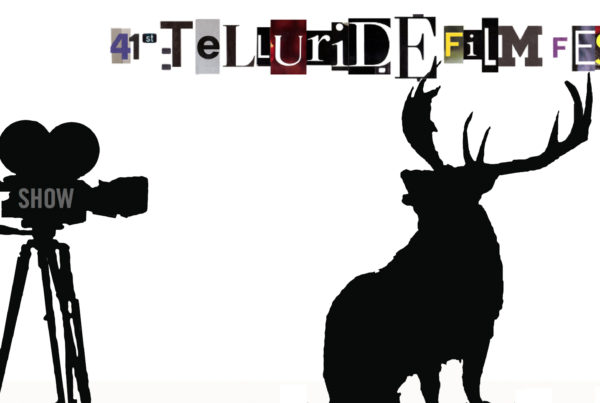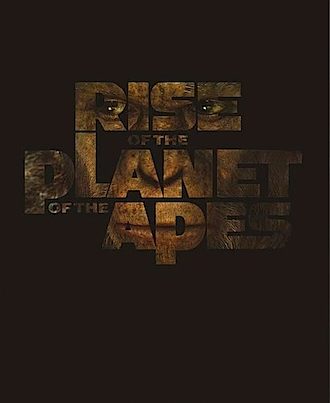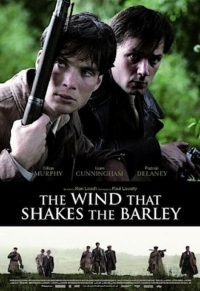 Veteran British director Ken Loach has been responsible for some of the finest, and most important, films of the last 40 years. From Cathy Come Home in 1966 and Kes in 1969 to modern classics like Riff-Raff in 1990, Loach has often been the conscience of a British film industry unable or unwilling to use it’s power for political ends. A rare diversion from the kitchen sink, The Wind That Shakes the Barley features Loach’s customary humanist concern for the little person along with a vigorous intellectual regard for the political realities and unrealities of the period.
Veteran British director Ken Loach has been responsible for some of the finest, and most important, films of the last 40 years. From Cathy Come Home in 1966 and Kes in 1969 to modern classics like Riff-Raff in 1990, Loach has often been the conscience of a British film industry unable or unwilling to use it’s power for political ends. A rare diversion from the kitchen sink, The Wind That Shakes the Barley features Loach’s customary humanist concern for the little person along with a vigorous intellectual regard for the political realities and unrealities of the period.
We’re in Ireland in 1920 and the IRA insurgency is at its height. The British Army (many of whom are still traumatised by their experiences in the trenches of France) is forced to use increasingly barbaric tactics to try and maintain order. The Republicans themselves are split between those who simply want to eject the Brits and others who see an opportunity for a greater political transformation, the overthrow of the landlord classes and the creation of a Worker’s Republic. The soulful eyes of Cillian Murphy as doctor turned freedom-fighter Damien eloquently express the pain of a conflict that brutalises all involved. The Wind That Shakes the Barley is an outstanding film and the parallels with an ugly occupation going on in our own time are impossible to ignore.
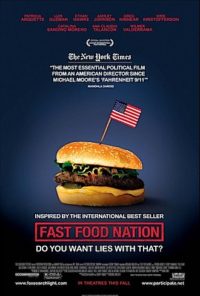 The latest entry in the seemingly endless “Hell in a Handcart Festival” proving so popular among the namby-pamby, wishy-washy, shilly-shallyers among us is Richard Linklater’s Fast Food Nation. It is a fictionalised version of the best-selling (non-fiction) book by Eric Schlosser which lifted the lid the on ugly industrial truth about the processed food industry. Unfortunately, it doesn’t really work as drama because, unlike Loach, Linklater cares more about ticking his political boxes than he does about his characters. And besides, we know it’s a less than ideal situation but surely it’s worse for the cows.
The latest entry in the seemingly endless “Hell in a Handcart Festival” proving so popular among the namby-pamby, wishy-washy, shilly-shallyers among us is Richard Linklater’s Fast Food Nation. It is a fictionalised version of the best-selling (non-fiction) book by Eric Schlosser which lifted the lid the on ugly industrial truth about the processed food industry. Unfortunately, it doesn’t really work as drama because, unlike Loach, Linklater cares more about ticking his political boxes than he does about his characters. And besides, we know it’s a less than ideal situation but surely it’s worse for the cows.
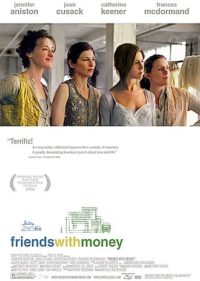 A screen acting masterclass (or should that be “mistress-class” considering who we are talking about) is available in Friends With Money, Nicole Holofcener’s follow-up to the lovely and amazing Lovely & Amazing from 2001. Catherine Keener, Frances McDormand and Joan Cusack are sensational and Jennifer Aniston more than holds her own alongside this heavy-hitting bunch. She’s really good. A highly recommended modern comedy of manners.
A screen acting masterclass (or should that be “mistress-class” considering who we are talking about) is available in Friends With Money, Nicole Holofcener’s follow-up to the lovely and amazing Lovely & Amazing from 2001. Catherine Keener, Frances McDormand and Joan Cusack are sensational and Jennifer Aniston more than holds her own alongside this heavy-hitting bunch. She’s really good. A highly recommended modern comedy of manners.
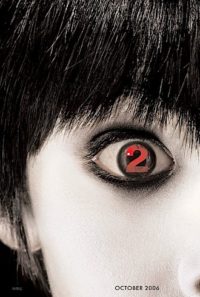 I held out no great hopes for The Grudge 2 as the original Japanese version couldn’t keep me awake when I watched it on DVD last year and sure enough there are a few shocks but no surprises. Amber Tamblyn takes on the role of bewildered American this time around, investigating the mysterious death of sister Sarah Michelle Gellar from the first film (US version, keep up). The repetition of the same gag over and over again wasn’t enough for me, nor for the restless little punks playing up at the front of the cinema.
I held out no great hopes for The Grudge 2 as the original Japanese version couldn’t keep me awake when I watched it on DVD last year and sure enough there are a few shocks but no surprises. Amber Tamblyn takes on the role of bewildered American this time around, investigating the mysterious death of sister Sarah Michelle Gellar from the first film (US version, keep up). The repetition of the same gag over and over again wasn’t enough for me, nor for the restless little punks playing up at the front of the cinema.
 Beowulf & Grendelis a surprise package from Iceland (via Canada): an earthy re-telling of the epic Scandinavian poem from the days when men had enough time between battles to plait their beards. A familarity with the source material is not necessary as story rattles along pretty well but the range of accents on offer mean that some concentration is required to get the best of the dialogue. The DVD presentation is murky during the low-light scenes but vivid in the daylight and the performances are enthusiastically rustic. More fun than a bucket of herring.
Beowulf & Grendelis a surprise package from Iceland (via Canada): an earthy re-telling of the epic Scandinavian poem from the days when men had enough time between battles to plait their beards. A familarity with the source material is not necessary as story rattles along pretty well but the range of accents on offer mean that some concentration is required to get the best of the dialogue. The DVD presentation is murky during the low-light scenes but vivid in the daylight and the performances are enthusiastically rustic. More fun than a bucket of herring.
Printed in Wellington’s Capital Times on Wednesday 1 November, 2006.
Nature of Conflict: The Wind That Shakes the Barley is also playing at Auckland’s Academy Cinema, whose web site I designed and maintain. I thang you.

